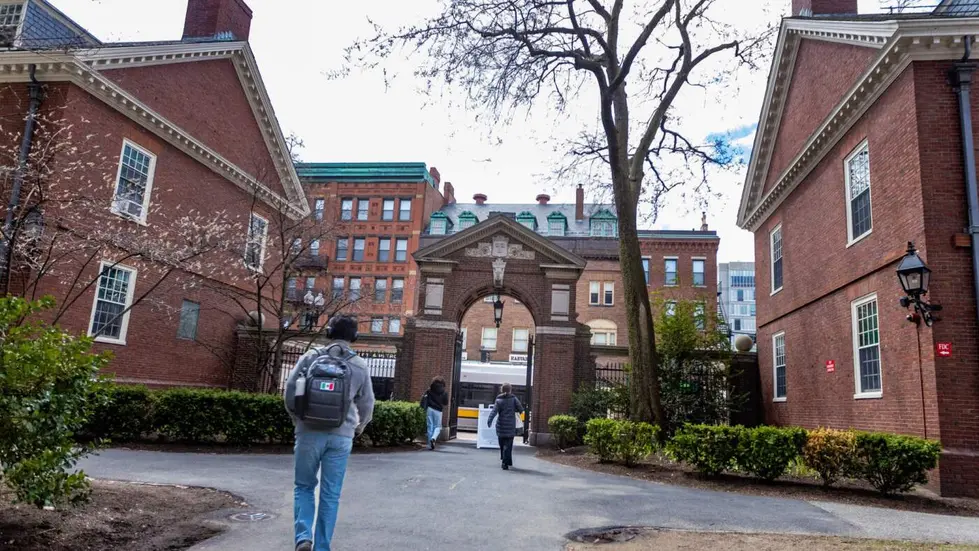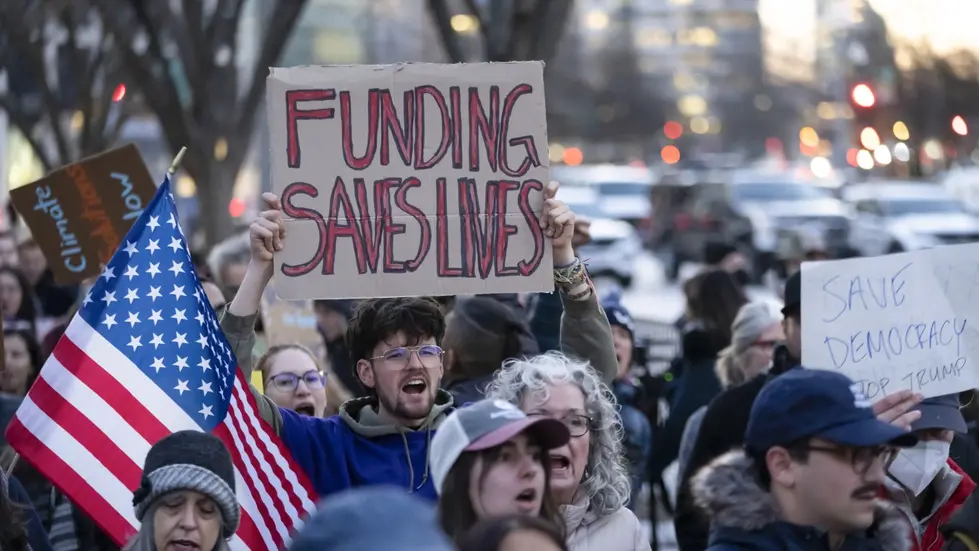T4K3.news
DEI policy ruling blocks funding risk
A federal judge blocks two Education Department memos aimed at ending DEI programs and race based decision making in schools.

A federal judge ruled that two Education Department memos aimed at ending diversity, equity and inclusion programs violate procedural rules.
Judge blocks Trump plan to end DEI programs
A federal judge in Maryland on Thursday blocked two Education Department memos that aimed to end diversity, equity and inclusion programs at U S schools and universities. Judge Stephanie Gallagher said the memos violated procedural requirements and cannot stand. The ruling follows a February lawsuit brought by the American Federation of Teachers and the American Sociological Association that challenged the government actions. The memos ordered schools to end race based decision making or face penalties, including the loss of federal funding, a step critics said would redefine civil rights policy.
The Education Department said it was disappointed but would continue to enforce Title VI protections at a high level. The department argued the memos were meant to remind schools that discrimination remains illegal. Opponents say the guidance chilled speech and activism in classrooms and feared a broad purge of DEI initiatives. The decision leaves open the larger legal question of how far the federal government can regulate educational practices while pursuing equity goals.
Key Takeaways
"It initiated a sea change in how the Department of Education regulates educational practices and classroom conduct, causing millions of educators to reasonably fear that their lawful, and even beneficial, speech might cause them or their schools to be punished."
Judge Gallagher on the ruling s impact
"Threatening teachers and sowing chaos in schools throughout America is part of the administration s war on education, and today the people won."
Democracy Forward statement
"Educational institutions have toxically indoctrinated students with the false premise that the United States is built upon 'systemic and structural racism' and advanced discriminatory policies and practices."
Craig Trainor statement
The ruling underscores a long standing clash between equity aims in education and concerns about free inquiry. It shows how civil rights policy can collide with classroom speech and school autonomy. The court did not decide if DEI ideas are good or bad, but it did require procedural rigor in policy moves that could affect hundreds of institutions.
If policymakers want DEI initiatives to survive, they will need clearer rules that protect speech and avoid sweeping funding penalties. The case may set a benchmark for future disputes over race based policies in education and how aggressively the federal government can act when equity is at stake. The outcome will likely influence budgets, political narratives and the pace of change in schools.
Highlights
- Speech is a shield not a budget target
- Courts shape classrooms more than we expect
- Policy should serve students not silence debate
- Education needs courage not censorship
Political sensitivity risk around DEI ruling
The ruling touches on race based policies, funding and civil rights enforcement, raising potential backlash among politicians, educators and voters. The decision could become a focal point in ongoing debates about education policy and budget priorities.
The debate over how to balance equity with speech and classroom autonomy will continue to shape policy and politics.
Enjoyed this? Let your friends know!
Related News

Court blocks DEI guidance in school policy

France blocks reintroduction of acetamiprid

Mother fights to save her daughter from mental illness

Water companies sidestep Labour's bonus ban

Rights at risk in UK says Davies

Harvard contests federal funding freeze in court

IMF advises UK to reconsider pension and NHS treatment policies

Reeves announces new plans to deregulate UK economy
